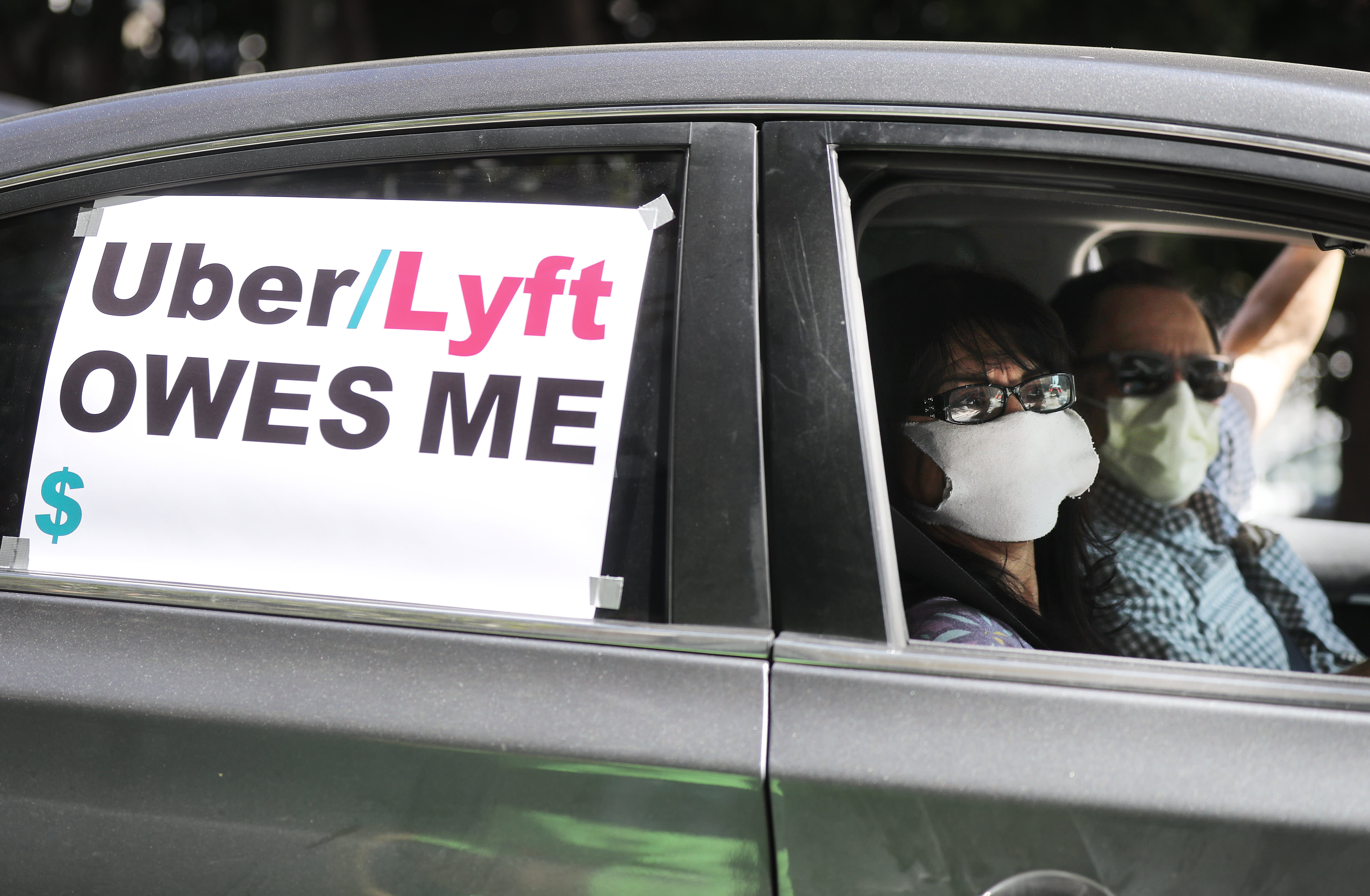Uber and Lyft are pouring millions of dollars into Facebook ads to protect their business in California

A driver and passenger wear face masks as Uber and Lyft drivers with Rideshare Drivers United and the Transport Workers Union of America conduct a ‘caravan protest’ outside the California Labor Commissioner’s office amidst the coronavirus pandemic on April 16, 2020 in Los Angeles, California.
Mario Tama | Getty Images
With just over a week before the 2020 election, Uber and Lyft are sparing no expense trying to convince Facebook users in California to back them at the polls.
Yes on Prop 22, a group that wants gig economy companies in their home state to be able to keep classifying drivers as contractors, spent $3.7 million on Facebook ads in California in the past month, more than any other campaign, including for president, spent in the state over that stretch. If successful, the proposition would make ride-sharing and delivery companies exempt from a new law in California that forces companies to reclassify gig workers as employees, and to offer them benefits like paid sick leave and unemployment protection.
Nationwide, according to Facebook’s ad library, supporters of Proposition 22 are outspending every political effort with the exception of the Trump and Biden presidential campaigns, the main party organizations, and a PAC called Stop Republicans. More than half of Yes on Prop 22’s total Facebook outlay has come in the past 30 days.
Uber and Lyft have been by far the biggest backers of Proposition 22, contributing the bulk of the almost $190 million raised to get the measure passed. Postmates, which Uber is acquiring, has been a big funder, along with Instacart and Doordash.
The Facebook ads are mostly 15- to 30-second videos claiming that drivers prefer to be contractors because of flexibility.
One of the group’s most expensive ads ran during the first two weeks of October and cost between $400,000 and $450,000, targeting people between the ages of 18 and 34.
Geoff Vetter, the spokesman for the Yes on 22 campaign, said in an email that almost one million drivers need the measure to pass “to save and improve their work,” while millions of California residents “rely on app-based services.”
“We are committed to winning Prop. 22 and will continue communicating with voters until all votes are cast,” Vetter wrote.
Uber and Lyft are pushing the measure on their own apps as well. Users who launch the Uber app to order a ride in California are likely to see the message “Keep drivers earning,” followed by a link to information promoting Proposition 22. Lyft says on its app that “Prop 22 is a win-win.”
Screenshot from Uber app
Uber
The opposition campaign is backed by labor groups and is spending much less. No on Prop 22 has spent $127,520 on Facebook ads in the past month and just over $350,000 in total. That’s less than supporters spent on some individual ads.
Led by the California Labor Federation and AFL-CIO, No on 22 has raised one-eighth the sum of money as the other side. It says the proposition was “written by app companies, for app companies.” In a Facebook ad that started running this month, opponents say that Uber, Lyft and DoorDash “wrote deceptive Prop 22 to deny drivers their rights.”
“They hired expensive lawyers and paid political operatives to collect enough signatures to ask California voters just one question: Will you let app companies buy themselves a special exemption in the law to exploit workers for profit?”
A poll released last month from UC Berkeley’s Institute of Governmental Studies (IGS) indicated that 39% of likely voters support Proposition 22, while 36% oppose it and 25% remain undecided.
WATCH: California AG Xavier Becerra on the fight over gig workers and Prop 22